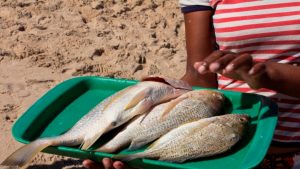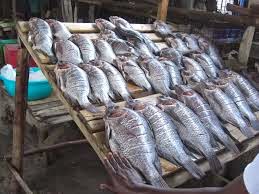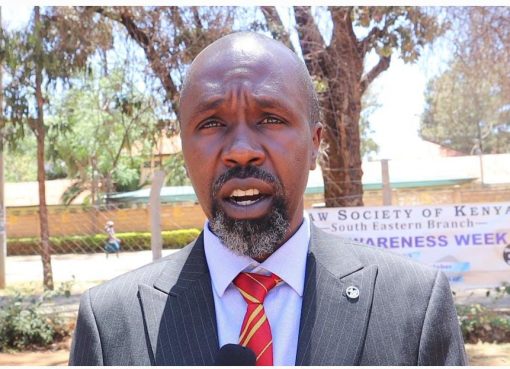The government has today assured citizens that the fish in the country is safe.
This comes in the wake where critics have been saying that the fish at Lake Victoria is not fit for human consumption and it is toxic.
According to the Ministry of Agriculture, Livestock, Fisheries and Cooperatives, they have been conducting quarterly sampling of water, fish and sediments from the fishing grounds and the results from accredited laboratories within and outside country are good.
Speaking during a State department of fisheries, aquaculture and the blue economy national stakeholder validation meeting, the Principal Secretary Prof. Micheni Ntiba said the government has a system from 24 years ago where its assured the fish that we eat in the country and also goes to other markets is safe.

“We have a very elaborate residue system where we measure this and it’s on the basis of this that we want to assure Kenyans that all fish from our water is safe for human consumption because we have the data” the PS insisted.
He warned of many experts in the area commenting on fishing issue making it very complicated and said that EAC countries and the markets where the fish is sold came together in 1999 and developed the Fish and Fisheries competent authority that should be the one commenting as an authority on matters of fish.
The PS confirmed that here in the Country, only the Director General of Kenya Fisheries services has competent authority to comment and other institutions and agencies that have been commenting on these issues should be under him
On the issue of controversial Chinese Fish which is sold locally and has been selling at very low price in the country, the PS clarified that the production of fish in China stands at 70 percent from all farmed fish in the world thus they export to almost all countries of the world.
As a country, he noted that based on our residue monitoring system, samples from the china fish are measured according to the quality required . ‘I want to assure that the fish meets the required standards as appraised by the competent authority’, he emphasized.
Prof. Ntiba said that there is a huge shortage and therefore scramble for fish in the world and that here in Kenya while we produce around 167,000 metric tonnes of fish, if we go by current per capita fish consumption eaten by a Kenyan per year which is stands at 4.7 kilogramme per person and we expect it to grow to 10kg per year , it means our national production cannot support what people demand thus the reason for import.

He however noted that in the short term, and according to the Medium Term Plan , the government strategy from aquaculture, inland fisheries and also seas, wants to increase the production of fish from 167,000 metric tonnes per year to around 400,000 metric tonnes by 2022.
Currently he explained that the government which has been developing three international accredited laboratories for fish quality has completed construction and just last week recruited 74 laboratory technicians and technologists to run them.
“These laboratories will solve the problem of every other person coming up with their own data. The headquarters of the lab is in Nairobi, and two others are in Mombasa and Kisumu”, he said.
The government is also putting up a world class state of art Mari-culture Centre in Kwale County to provide fingerlings and technology for farming the in the ocean , the PS said .
Prof. Ntiba added that the government is now investing a Ksh 6 billion budget into the fisheries in the country and with what County governments are also investing in, this will be a chunk to take the sub -sector forward.
The government has also a Ksh 15 billion programme to commercialize aquaculture in 15 counties and also together with World bank invested Ksh 10 billion to revolutionize the ocean fisheries in the country
Trans Nzoia County Executive Committee Member (CECM) Mary Nzomo said County governments were committed to ensure there is enough resources noting that they have invested heavily in fish farming as county government not only just for income but also for food and nutrition security.
“With the diminishing land sizes where we cannot even keep cattle, or big animals, there is a bit of opportunities for farmers to do fish farming in ponds ‘ , she said adding that as County Governments they appreciate that fish farming can actually be done in every part of the country.
By Wangari Ndirangu





